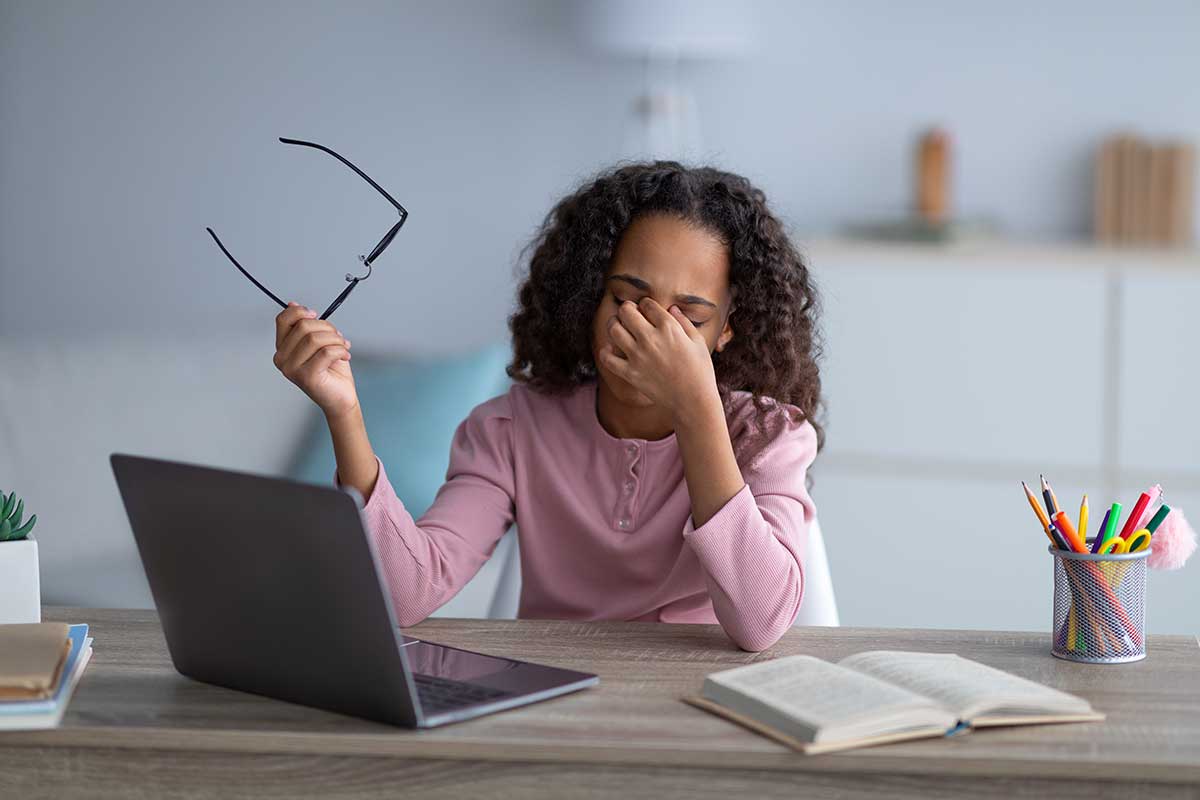For many adolescents and teens, the beginning of the pandemic seemed like a win: stay home, work on the computer and don’t get dressed, play online games all day. Teens who were struggling with social anxiety and other mental health issues also found a moment of reprieve, free from the usual daily pressures of school.
But as the COVID-19 closures and restrictions dragged on, many Americans began to experience challenges with their mental health. The vacation for adolescents and teens became isolation. So as remote learning became the new routine, they quickly joined everyone else in the rising tide of people in need of mental health services.
Remote learning anxiety may seem strange to adults that imagined their kids were all hopelessly addicted to their devices and social media. Still, in truth, most teens rely on real-world contact with their peers to deal with depression, anxiety, and other negative feelings. This network has now been taken away for months at a time. Beyond Healthcare has seen the effects of this phenomenon first-hand, and we have developed strategies to help our teens heal and thrive.
What Does Teen Anxiety Look Like?
Teens who struggle with anxiety dwell on sad thoughts or difficult problems to the point that the thoughts become circular and without resolution. In a normal school environment, they can often brush these thoughts off by engaging with their friends and physical activity. During extended periods of remote learning, these thoughts begin to reign over their days and nights unchecked. A parent should take notice when they see:
- Broken sleep patterns — Adolescents experiencing anxiety will often stay up until the early morning or not sleep at all, with racing thoughts that won’t stop until they are physically exhausted.
- Intense fear — After many hours of remote learning, your teen may start to feel like the world is caving in, and simple things like asking the teacher for help may trigger fear and anxiety.
- Excessive weight loss or gain — This type of sudden change in eating habits is often a red flag for a number of teen mental health issues, not just anxiety.
- Detachment from normal levels of social interaction — Teens who used to text with their friends nonstop and chat away in breakout rooms online may start to pull back, turn off their cameras and microphones halfway through a lesson, or just log off completely and isolate themselves.
- Risk-taking behavior — Loss of purpose and anything tangible to look forward to will often lead teens into dangerous new activities like drugs, excessive drinking, and online sexual encounters.
- New sources of physical pain and tension — This is beyond the normal aches and soreness you would expect from sitting at a computer for long hours. Teens who are suffering from anxiety will often complain of stomach aches and headaches or muscle tension in usual places.
Finding a good psychologist for your adolescent can help them work through issues they may be uncomfortable bringing up at home.
Psychological Care for Teens: Contact Beyond Healthcare Today
Call us at 833.698.0453 and begin your journey to a holistic solution that is convenient for you and your family. We want to create an effective care plan that is individualized for each of our learners and their families. Our facilities can provide:
- Day treatment
- Individual counseling
- Mental health services
- Medication management
- Telehealth therapy
- Therapy for families
- Afterschool therapy
- Weekend appointments
Teens who have remote learning anxiety feel painfully alone. They shouldn’t, and neither should the families that struggle to support them. Let Beyond Healthcare bring your family into our supportive and inclusive community. Call us at 833.698.0453 today to set up an appointment or just to ask questions. We accept Medicaid and private insurance.



